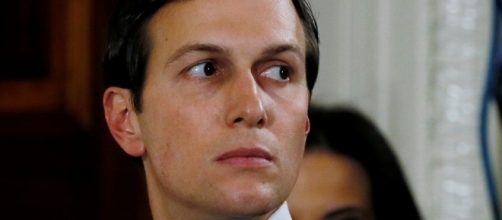So far, both White House officials and the Russian Embassy decline to comment on recent accusations that Jared Kushner has been keeping an open and secret channel with Russia. Jared Kushner, President Trump’s son-in-law, and one of the White House’s senior advisers was seeking to set up private communications with the Kremlin.
Kushner and Sergei Kislyak, the Russian Ambassador to Washington, had spoken about the possibility of coordinating a secure communications channel between the White House and Russia. U.S. Intelligence officials corroborated the above information via intelligence reports.
Communication with Russia
The Washington Post received a letter in December of 2016, anonymously, that annotated details of the first meeting. The letter suggested that Kushner offered to keep an open line of communication with Ambassador Kislyak. Officials reviewed the letter and indicated that it was consistent with their findings and understandings of the events.
There are allegations that Kushner told the Russians that he was very aware of the political sensitivity of their public meetings so he suggested a secure communication channel instead. Furthermore, prior to Flynn’s resignation from the National Security Agency (NSA), Kislyak, Kushner, and Flynn discussed arranging a meeting between a White House representative and a “Russian” contact in a third country.
No further details are available.
Kushner and Russia: 2016 campaign communications
A Reuters report indicated that Kushner had at least three undisclosed contacts with Kislyak during the 2016 Presidential Campaign—Kushner’s lawyer has stated that he has no recollection of those calls. Supposedly, there were two phone calls during the April-November 2016 timeframe with confirmations from seven U.S. officials.
More currently, Ambassador Kislyak reported to his superior officials in Moscow that Kushner suggested the plan for secret communications during an early December 2016 meeting at the Trump Tower. These communications were intercepted by Russian communications specialists and reviewed by U.S.
officials. Kushner actually suggested that they use Russian diplomatic facilities and Russian equipment in the United States.
.@MALCOLMNANCE on #Kushner allegations: No other administration in transition has ever had such communications with a foreign power #AMJoy
— AM Joy w/Joy Reid (@amjoyshow) May 27, 2017
Supposedly, Kislyak was shocked that there Kushner and the White House suggested using Russian communications equipment at its consulate or embassy. He stated that these actions have innate security risks for Moscow and the Trump Administration. The FBI closely monitors any Russian communications by keeping diplomatic facilities heavily surveilled. The NSA monitors Russian and other foreign official’s overseas communication.
Kushner, Russia, and the FBI
This recent news comes amid recent reports that Kushner is under investigation by the FBI for possible collusion with Russia. Russia is known for falsifying communications during their psychological operations—operations used to confuse U.S. analysts and the public.
Kushner’s interest in establishing this secret Russian channel poses a problem: why is the Trump Administration eager to be more reliant on secrecy with Russia than using the already established U.S. government systems?
"What manner of ignorance...would you have to have" to think this was a good idea says Gen. Hayden of Kushner report https://t.co/HS9HF13dca
— CNN (@CNN) May 27, 2017


